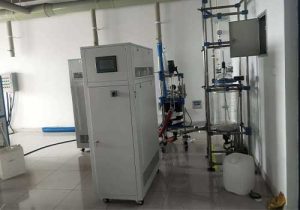thermic fluid heating system
Introduction to Thermic Fluid Heating Systems
Thermic fluid heating systems are integral to various industrial processes that require controlled and efficient heat transfer. These systems utilize a heat transfer fluid to convey thermal energy from a heat source to the equipment or processes that demand heating. The closed-loop design of these systems ensures uniform temperature distribution and precise control, which is crucial for maintaining product quality and process reliability.

Components of a Thermic Fluid Heating System
The primary components of a thermic fluid heating system include:
Heat Transfer Fluid: A thermally stable fluid that circulates through the system, absorbing and releasing heat as it moves.
Heat Source: This could be a boiler, furnace, or any other device that generates heat.
Pumps: They ensure the fluid is circulated throughout the system at the required flow rate.
Heat Exchangers: These are used to transfer heat from the fluid to the process or equipment.
Expansion Tanks: They accommodate changes in fluid volume due to temperature fluctuations.
Control Systems: They monitor and regulate system parameters such as temperature, pressure, and flow rate.
Operational Principles
The operational sequence of a thermic fluid heating system is as follows:

The heat transfer fluid is heated by the heat source.
The heated fluid is pumped through the system to the heat exchangers.
Heat is transferred from the fluid to the process or equipment at the heat exchangers.
The cooled fluid returns to the heat source to be reheated, and the cycle continues.
Advantages of Thermic Fluid Heating Systems
These systems offer several advantages:
Precise Temperature Control: They allow for accurate regulation of process temperatures, which is essential for quality control in many industries.
Energy Efficiency: The closed-loop design minimizes heat loss, improving overall energy efficiency.
Safety: The use of a heat transfer fluid reduces the risk of烫伤 and fire hazards compared to direct heating methods.
Versatility: These systems can be adapted to a wide range of applications and can handle various types of heat transfer fluids to suit specific process requirements.
Longevity: Properly maintained, thermic fluid heating systems can have a long service life, reducing the need for frequent replacements or repairs.
Applications of Thermic Fluid Heating Systems

Thermic fluid heating systems are used in a variety of industries, including:
Chemical Processing: For precise temperature control in chemical reactions and processes.
Food and Beverage: For pasteurization, sterilization, and other temperature-sensitive processes.
Pharmaceutical: For controlled heating in the manufacturing of drugs and medical products.
Textile Industry: For drying and heat setting processes.
Pulp and Paper: For drying processes in paper production.
Conclusion
Thermic fluid heating systems are vital for achieving precise temperature control and energy efficiency in industrial processes. Their closed-loop design and versatility make them suitable for a wide range of applications, from chemical processing to food and beverage production. As industries continue to evolve, the role of these systems in ensuring process reliability and safety remains critical.
Note: This article is intended for informational purposes only and does not endorse or promote any specific products or services. It is designed to provide a comprehensive understanding of thermic fluid heating systems and their importance in various industrial applications.
Related recommendations
industrial water heater electric
839The Operation and Importance of Industrial Water Heater Electric Industrial water heater electric systems are designed to provide a reliable and efficient source of hot water for a variety of i...
View detailsTypes and Applications of Industrial Box Chillers
1382Types and Applications of Industrial Box Chillers The main function of the box-type chiller is to provide process chilled water to the equipment to cool down the temperature, thereby improv...
View detailsportable chiller manufacturers
691Portable Chiller Manufacturers: Customizable Cooling Solutions Portable chiller manufacturers cater to the diverse needs of industries by providing a wide array of portable chillers designed fo...
View detailswater cooled chiller operation
362Fundamental Working PrinciplesThe operation of a water-cooled chiller is based on the vapor-compression refrigeration cycle, which involves four main components: the evaporator, compressor, conde...
View details
 LNEYA Chiller
LNEYA Chiller






HelloPlease log in